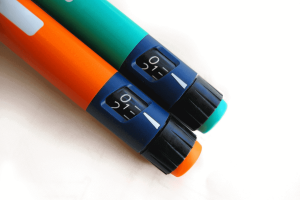Why You Should Watch Your Blood Pressure
We all know having diabetes means taking extra steps to watch your blood sugar. But what about your blood pressure?
According to WebMD, blood pressure is the force at which blood is being pumped throughout your body. When your doctor measures your blood pressure, you’ll get two numbers for results. The first one is called systolic pressure. It measures the pressure in your body as your heart beats. The second number, called diastolic pressure, is the pressure your body feels when your blood vessels relax between heartbeats. Most physicians say a healthy blood pressure level is around 120/80. High blood pressure, or hypertension, usually occurs when a person’s blood pressure measures around 140/90.
High blood pressure impacts a person’s health, because it indicates that the heart is working harder to pump blood throughout the body. According to the American Diabetes Association, 2 in 3 Americans with diabetes experience hypertension, compared to 1 in 3 Americans without diabetes. WebMD says people with diabetes are more likely to experience high blood pressure because diabetes can cause damage to the arteries, making them more susceptible to conditions such as hypertension, stroke, and heart attack.
It’s important for people with diabetes to watch their blood pressure levels to avoid hypertension. When a person’s blood pressure gets too high, it can worsen–or even cause many complications associated with diabetes, including eye disease, kidney disease, and neuropathy, WebMD says.
The good news is there are many steps you can take to both treat and prevent high blood pressure. Replacing fatty, salty, and sugary foods with fresh produce, lean meats, and whole grains can help keep your arteries clear. Getting at least 30 minutes of exercise each day will also strengthen your heart and promote good cardiovascular health. WebMD also recommends avoiding smoking and reducing alcohol consumption. Finally, high blood pressure usually has no symptoms. Make sure you visit your doctor to discuss any questions and to get your blood pressure checked regularly.




